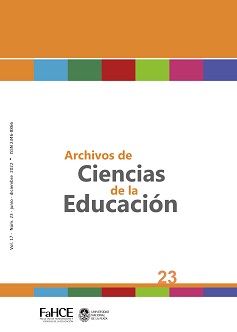Illusions and disillusions of Comparative Education: politics and knowledge
Main Article Content
Abstract
After an introduction, the first part presents a panoramic reading of Comparative Education based on four dates: to describe (1817), to imagine (1867), to predict (1917) and to prescribe (1967). Then, in a brief intermezzo, a more problematic Comparative Education is proposed, organized from three gestures: detachment, intercession and communication. In the second part, it is argued that Comparative Education has to construct another understanding of space and time and space-time relations, conceiving space as spatialities and time as temporalities. Finally, in the closing section, the relations between politics and knowledge are discussed, sustaining the need to reinforce a public space for discussion and deliberation that is, at the same time, a space to produce the common.
Downloads
Article Details

This work is licensed under a Creative Commons Attribution-NonCommercial-ShareAlike 4.0 International License.
This work is licensed under a Creative Commons Attribution 4.0 International (https://creativecommons.org/licenses/by-nc-sa/4.0/deed.es).
